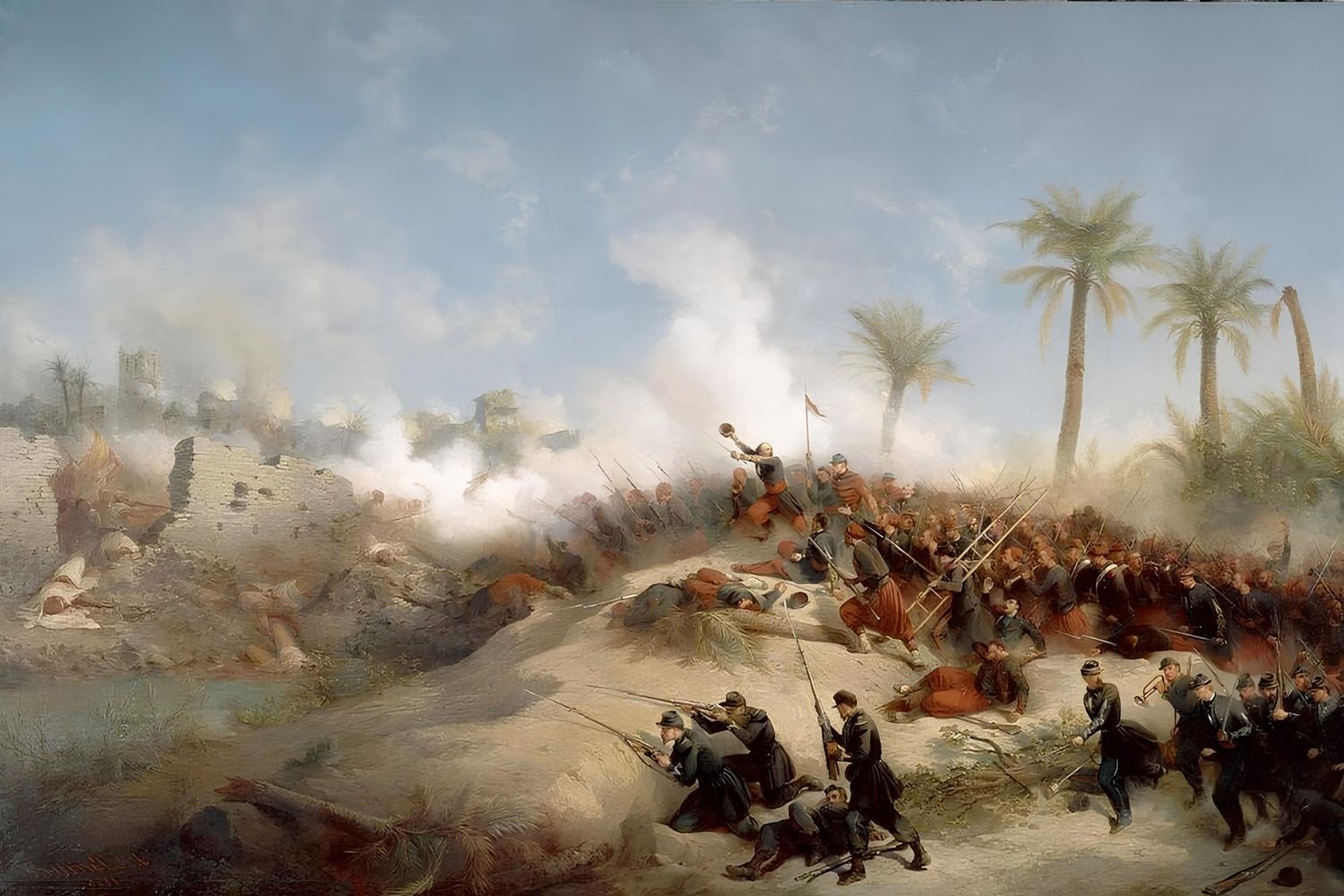
Why did the French military rebellion in Algeria happen? The French military rebellion in Algeria, known as the Algiers Putsch of 1961, occurred due to deep dissatisfaction among French army officers. They opposed President Charles de Gaulle's policy of granting independence to Algeria, a French colony since 1830. These officers, many of whom had fought to keep Algeria French, felt betrayed by de Gaulle's shift towards Algerian self-determination. Fearing the loss of French Algeria, they staged a coup to overthrow the government and maintain French control. This rebellion highlighted the intense conflict between French national interests and the growing demand for Algerian independence.
Key Takeaways:
- The French military rebellion in Algeria, also known as the Algiers Putsch, was a failed attempt by French generals to overthrow President Charles de Gaulle and stop Algeria from gaining independence.
- The rebellion deepened divisions within French society and accelerated negotiations for Algerian independence, marking a turning point in the Algerian War of Independence.
Background of the French Military Rebellion in Algeria
The French military rebellion in Algeria, also known as the Algiers Putsch, was a significant event in French history. It took place in 1961, during the Algerian War of Independence. This rebellion was led by French generals who opposed President Charles de Gaulle's policy of granting independence to Algeria.
- The rebellion occurred from April 21 to April 26, 1961.
- Four French generals led the rebellion: Maurice Challe, Edmond Jouhaud, Raoul Salan, and André Zeller.
- The generals were part of the French Army's elite paratrooper units.
- The rebellion aimed to overthrow President Charles de Gaulle.
- The generals believed de Gaulle's policies were betraying French settlers and soldiers in Algeria.
Key Events During the Rebellion
Several key events marked the course of the rebellion. These events shaped the outcome and had lasting impacts on French and Algerian history.
- On April 21, 1961, the generals seized control of Algiers, the capital of French Algeria.
- They declared a state of emergency and imposed martial law.
- The French government in Paris responded by declaring a state of emergency in mainland France.
- President de Gaulle addressed the nation on television, urging loyalty to the Republic.
- De Gaulle's speech included the famous phrase, "Frenchmen, help me!"
The Role of the French Military
The French military played a crucial role in the rebellion. Understanding their involvement helps explain the motivations behind the uprising.
- Many soldiers in Algeria supported the rebellion, feeling betrayed by de Gaulle's policies.
- The French Foreign Legion, a key military unit, was divided in its loyalty.
- Some military units remained loyal to the French government and resisted the rebels.
- The French Navy played a role in preventing the rebels from gaining control of key ports.
- The French Air Force was used to transport loyal troops to Algeria.
The Outcome of the Rebellion
The rebellion's outcome had significant consequences for both France and Algeria. It marked a turning point in the Algerian War of Independence.
- The rebellion failed after five days, with the generals surrendering on April 26, 1961.
- President de Gaulle's government remained in power.
- The failure of the rebellion strengthened de Gaulle's position and his policies.
- The generals were arrested and tried for their actions.
- Maurice Challe and Edmond Jouhaud were sentenced to death, but their sentences were later commuted.
Impact on French-Algerian Relations
The rebellion had a lasting impact on French-Algerian relations. It influenced the course of the Algerian War of Independence and the eventual independence of Algeria.
- The rebellion accelerated negotiations for Algerian independence.
- In March 1962, the Evian Accords were signed, granting Algeria independence.
- The rebellion deepened divisions within French society over the issue of Algeria.
- Many French settlers in Algeria, known as pieds-noirs, felt abandoned by the French government.
- The rebellion highlighted the challenges of decolonization and the complexities of French-Algerian relations.
Reflecting on the French Military Rebellion in Algeria
The French Military Rebellion in Algeria was a pivotal moment in history. It highlighted the complexities of colonial rule, the fierce resistance of the Algerian people, and the internal conflicts within France itself. This rebellion wasn't just a military struggle; it was a battle for identity, freedom, and justice. The events that unfolded during this period had lasting impacts on both Algeria and France, shaping their futures in profound ways. Understanding these facts helps us appreciate the sacrifices made and the lessons learned. History isn't just about dates and events; it's about the human stories behind them. By remembering the French Military Rebellion in Algeria, we honor those who fought for their beliefs and paved the way for future generations. Let's continue to learn from the past to build a better future.
Frequently Asked Questions
Was this page helpful?
Our commitment to delivering trustworthy and engaging content is at the heart of what we do. Each fact on our site is contributed by real users like you, bringing a wealth of diverse insights and information. To ensure the highest standards of accuracy and reliability, our dedicated editors meticulously review each submission. This process guarantees that the facts we share are not only fascinating but also credible. Trust in our commitment to quality and authenticity as you explore and learn with us.
